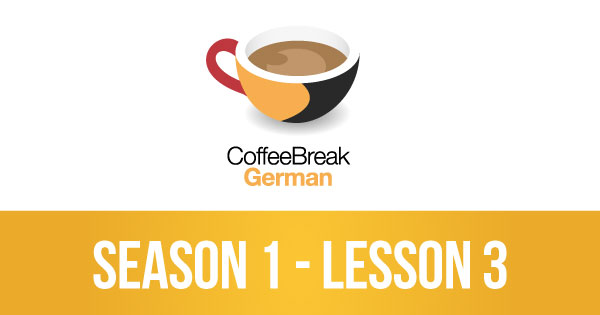 Buongiorno a tutti and welcome to On Location Italian. It’s Nicole here writing to you all once again from Verona, Italy. One of the highlights of spending a year abroad is when your loved ones from back home pay you a visit and you are finally able to show them around the beautiful city and region it has been your privilege to be living and studying in. With the female members of my family having already made the trip, it was the turn last week of my brother and dad to spend some time here.
Buongiorno a tutti and welcome to On Location Italian. It’s Nicole here writing to you all once again from Verona, Italy. One of the highlights of spending a year abroad is when your loved ones from back home pay you a visit and you are finally able to show them around the beautiful city and region it has been your privilege to be living and studying in. With the female members of my family having already made the trip, it was the turn last week of my brother and dad to spend some time here.
After showing them around the sights of Verona, since my brother has from childhood been a huge Juventus tifoso (“fan”), it was only fitting that we caught the train to the football team’s home city of Torino (“Turin”). It was my second time visiting the city now up there on my list of favourite European cities and in my view rather underrated in comparison to other major cities such as Rome, Venice and Milan.
Unfortunately we were not able to get hold of tickets for a Juventus partita (“match”). We were able however to take a visita guidata (“guided tour”) of lo stadio (“the stadium”), getting up close and personal with all areas including la tribuna (“the stands”), la tribuna d’onore (“the VIP section”), and lo spogliatoio (“the dressing room”). To make up for missing the match, my brother, dad and I sat at a local bar where the Juventus match was being shown live. Although not a massive football fan myself I did take the opportunity to pick up phrases I heard being used throughout the game. The most common of these amongst the Juve tifosi (“fans”) was Forza Juve, meaning “Come on Juve!” I also heard fallo di mano, which means “hand ball” with fallo being translated as “foul”. Other phrases I heard were calcio d’angolo (“corner kick”), calcio di punizione (“free kick”) and fuorigioco (“offside”).
With my dad and brother back in Scotland, I am now back to my usual pastimes which are normally enjoyed in an environment somewhat less male-dominated than football but surprisingly I loved learning about il calcio italiano (“Italian football”) and spending some quality time with my family. I hope you have all enjoyed On Location Italian and I will be back soon. A presto!

 Hallo zusammen! It’s Daniel here for another On Location German blogpost! I now have ein neuer Stundenplan (“a new timetable”), which now allows me more opportunities to travel! (reisen=”to travel”.) So last weekend I took a trip to Hannover in the state of Niedersachsen, (“Lower Saxony”) which isn’t very far from here in Herford. Hannover city centre is very open with long, wide streets which make the streets of Scottish cities look small. Then again, most German cities make Scottish cities look small! There was only one problem during the trip:
Hallo zusammen! It’s Daniel here for another On Location German blogpost! I now have ein neuer Stundenplan (“a new timetable”), which now allows me more opportunities to travel! (reisen=”to travel”.) So last weekend I took a trip to Hannover in the state of Niedersachsen, (“Lower Saxony”) which isn’t very far from here in Herford. Hannover city centre is very open with long, wide streets which make the streets of Scottish cities look small. Then again, most German cities make Scottish cities look small! There was only one problem during the trip: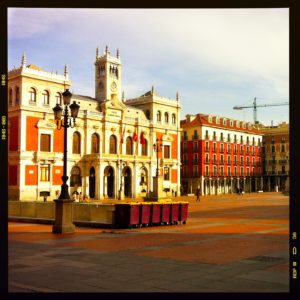 ¡Bienvenidos a On Location Spanish! It’s Iain here with another update from my Erasmus at the Universidad de Salamanca.
¡Bienvenidos a On Location Spanish! It’s Iain here with another update from my Erasmus at the Universidad de Salamanca.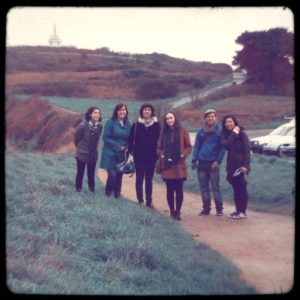 Salut tout le monde! It’s Rose here with another blog post from France. This article comes after realising how quickly my year abroad here in St Brieuc is going in. It’s already nearing the end of February, and my contract at school finishes in April. With this in mind, myself and a few friends decided il faut profiter du temps qui nous reste – we have to make the most of the time left to us. So, last weekend we visited the coastal town of Perros Guirec. Further north in Brittany than Saint Brieuc, Perros Guirec is well known for le granit rose, the pink-coloured rocks that make up the beach and coast here. It was nice to spend a calm weekend here, and opened my eyes to different environments. It’s easy to think weekends away have to involve visiting somewhere bigger, but sometimes escaping to a nearly deserted beach can do the world of good.
Salut tout le monde! It’s Rose here with another blog post from France. This article comes after realising how quickly my year abroad here in St Brieuc is going in. It’s already nearing the end of February, and my contract at school finishes in April. With this in mind, myself and a few friends decided il faut profiter du temps qui nous reste – we have to make the most of the time left to us. So, last weekend we visited the coastal town of Perros Guirec. Further north in Brittany than Saint Brieuc, Perros Guirec is well known for le granit rose, the pink-coloured rocks that make up the beach and coast here. It was nice to spend a calm weekend here, and opened my eyes to different environments. It’s easy to think weekends away have to involve visiting somewhere bigger, but sometimes escaping to a nearly deserted beach can do the world of good.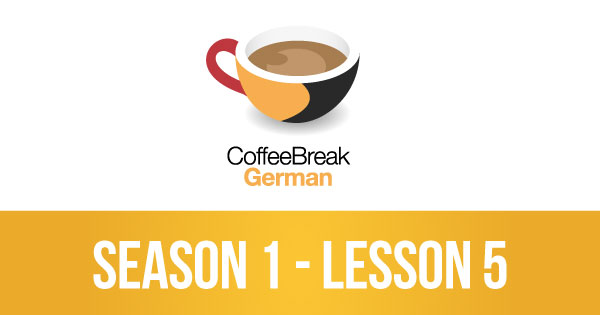
 Hej! I have to admit that this week I have left writing this article a little late – something which Swedes, with their sense of punctuality which could rival the Swiss or Germans, would seriously frown upon! Several Swedish friends told me separately that they grew up with the motto from their parents, that if one is going to be anything more than 3 minutes late, it probably is not worth showing up at all. But in this case, my being late is what led me to the idea for this week’s article, namely, tid (time). Telling time and phrases around it are, I find, always one of the most difficult things when learning a new language, and so I would like to dedicate a little of my time today to talking about it.
Hej! I have to admit that this week I have left writing this article a little late – something which Swedes, with their sense of punctuality which could rival the Swiss or Germans, would seriously frown upon! Several Swedish friends told me separately that they grew up with the motto from their parents, that if one is going to be anything more than 3 minutes late, it probably is not worth showing up at all. But in this case, my being late is what led me to the idea for this week’s article, namely, tid (time). Telling time and phrases around it are, I find, always one of the most difficult things when learning a new language, and so I would like to dedicate a little of my time today to talking about it.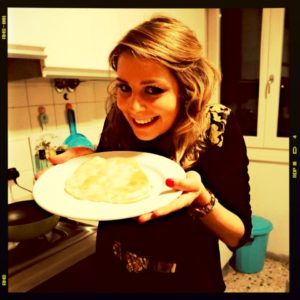 Buongiorno a tutti and welcome to On Location Italian. It has been a busy old week here in Verona. To start off with there was the famous Carnevale di Venezia (“Carnival of Venice”), an annual festival held in Venice that attracts visitors from all over. I was fortunate enough to spend the day there, taking in the electric atmosphere and witnessing all the weird and wonderful masks at the contest for “La Maschera più bella” (“the most beautiful mask”) held in Venice’s main square, Piazza San Marco. The effort and detail that went into these masks was incredible! Verona also held its own Carnevale, not quite on the grand scale of the one taking place in Venice but one nonetheless impressive.
Buongiorno a tutti and welcome to On Location Italian. It has been a busy old week here in Verona. To start off with there was the famous Carnevale di Venezia (“Carnival of Venice”), an annual festival held in Venice that attracts visitors from all over. I was fortunate enough to spend the day there, taking in the electric atmosphere and witnessing all the weird and wonderful masks at the contest for “La Maschera più bella” (“the most beautiful mask”) held in Venice’s main square, Piazza San Marco. The effort and detail that went into these masks was incredible! Verona also held its own Carnevale, not quite on the grand scale of the one taking place in Venice but one nonetheless impressive.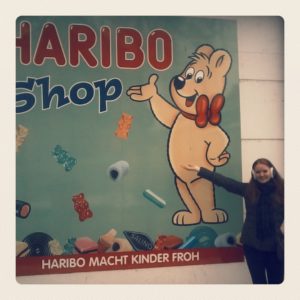 Hi everyone! It’s Holly here with another blog post from Germany and after having been back in Scotland for a couple of weeks for the Christmas holidays, I am looking forward to getting back into the German way of life.
Hi everyone! It’s Holly here with another blog post from Germany and after having been back in Scotland for a couple of weeks for the Christmas holidays, I am looking forward to getting back into the German way of life.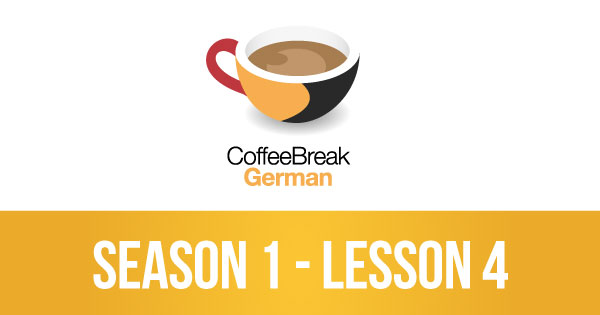
 Bienvenido a todo el mundo to Grace’s first On Location Spanish update of 2013! I hope the New Year has gotten off to a great start for you all, and without further ado I’d like to tell you about my first months back in Valencia.
Bienvenido a todo el mundo to Grace’s first On Location Spanish update of 2013! I hope the New Year has gotten off to a great start for you all, and without further ado I’d like to tell you about my first months back in Valencia.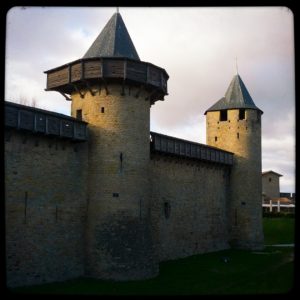 Bonjour à tous et à toutes et bienvenue à ma première entrée de blog de l’année 2013! Since we last spoke, I flew back home to Scotland to spend the festive period with all my family and friends; I travelled to places like Paris and Barcelona to visit friends; and I recommenced my studies and my life in Toulouse. Whilst I am thoroughly enjoying my time here in France, it was great to be able to return, albeit rather briefly, to all the old faces and familiar climes; the fact always remains that on n’est nulle part mieux que chez soi – there’s no place like home!
Bonjour à tous et à toutes et bienvenue à ma première entrée de blog de l’année 2013! Since we last spoke, I flew back home to Scotland to spend the festive period with all my family and friends; I travelled to places like Paris and Barcelona to visit friends; and I recommenced my studies and my life in Toulouse. Whilst I am thoroughly enjoying my time here in France, it was great to be able to return, albeit rather briefly, to all the old faces and familiar climes; the fact always remains that on n’est nulle part mieux que chez soi – there’s no place like home!